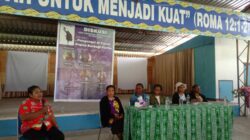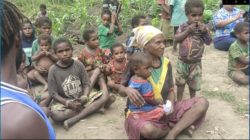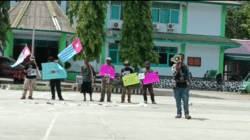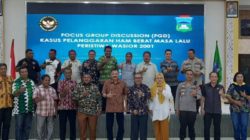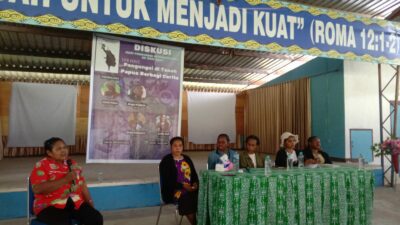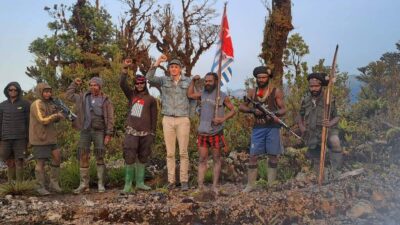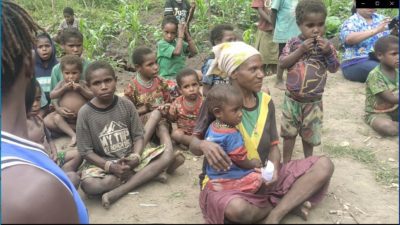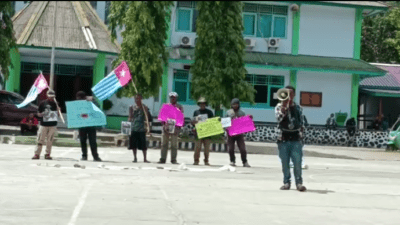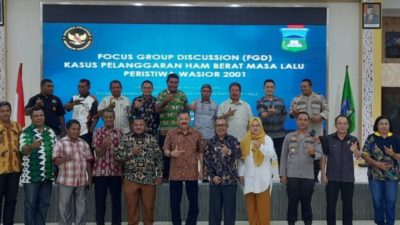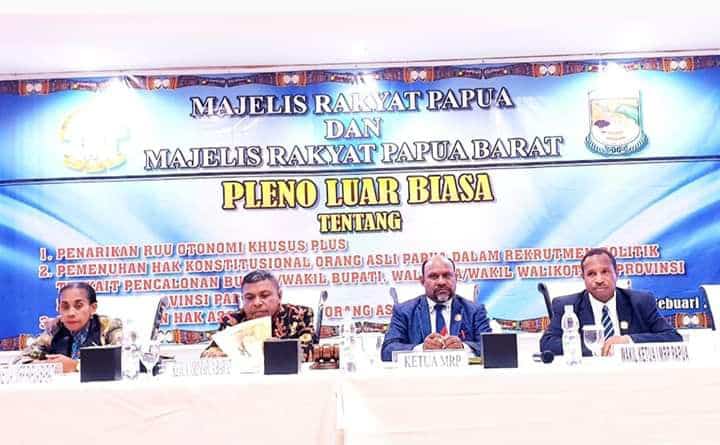
Jayapura, Jubi – The Chairman of West Papuan People’s Assembly (MRPB) Maxi Ahoren in the Extraordinary Plenary Meeting states MRP and MRPB on Friday (28/2/2020) have decided to withdraw the draft of the Papuan Special Autonomy Law amendment. The revision should be made based on people’s evaluation of the implementation of Papuan Special Autonomy Law, he said.
Maxi Ahoren confirmed Jubi on Monday (2/3/2020) that this decision made referring to Article 77 of the Law No. 21 of 2001 about Papuan Special Autonomy Law, in which highlight that Papuan people can propose the amendment to Indonesian House of Representatives or Indonesian Government via MRP and Papuan House of Representatives. Therefore, those who can evaluate the implementation of Papuan Special Autonomy is Papuan people, not a particular group or individuals, nor the government.
“We take it to the people, so they can observe ‘what have you done?’ because the Special Autonomy is for the people. It was born from people. So, we need to listen to the evaluation from them instead of the government officials,” said Ahoren.
Accordingly, he calls on all stakeholders to give Papuan people to evaluate the policy, because they have been learning, witnessing and experiencing the implementation of this policy. “We take it to the people. Let them assess whether if the special autonomy succeed or failed. If they think the special autonomy failed, we must think another step to take. It is also the rights of people,” said Ahoren.
Earlier, the MRP Chairman Timotius Murib stated the Extraordinary Plenary Meeting of MRP and MRPB passed four joint conclusions in which the withdrawal of Papuan Special Autonomy amendment draft was the one.
The plenary also agreed on an affirmative policy to prioritise indigenous Papuans as candidates of regents, deputy regents, mayors and deputy mayors in the Land of Papua. The decision broadens the affirmative action included in the Law No. 21 of 2001 on the Papuan Special Autonomy Law stated the candidates of the governor and vice governor in Papua must be indigenous Papuans.
“The first decision is about the Fulfilment of the Constitutional Rights of Indigenous Papuans in Political Recruitment in regards to the nominations of regents and deputy regents/mayors and deputy mayors in Papua and West Papua provinces. The recruitment must prioritise indigenous Papuans,” said Murib after closing the Extraordinary Plenary Meeting of MRP and MRPB in Sentani, Jayapura Regency on Friday (28/2/2020).
Murib further said that MRP and MRPB also agreed on Legal Protection and Human Rights towards indigenous Papuans. This decision stated indigenous Papuans must be treated equally like other Indonesian citizens before the Indonesian law. “The legal protection must meet the standards of humanitarian and human rights principles,” said Murib.
The protection towards Papuan students who study outside of Papua also become the third decision in the plenary. Murib admitted that the decision was made as a response to the persecutions and racism taunts against Papuan students in Surabaya on 16 August 2019, as well as the intimidation experienced by Papuan students in many cities in Indonesia following the racism incident in Surabaya.
“Since the incident of racism (in Surabaya), students from both Papua and West Papua provinces have been under pressure. They are feeling uncomfortable to study [outside of Papua]. Therefore, it needs a guarantee from the local government where they live to protect their rights before the law,” said Murib. (*)
Reporter: Benny Mawel
Editor: Pipit Maizier


